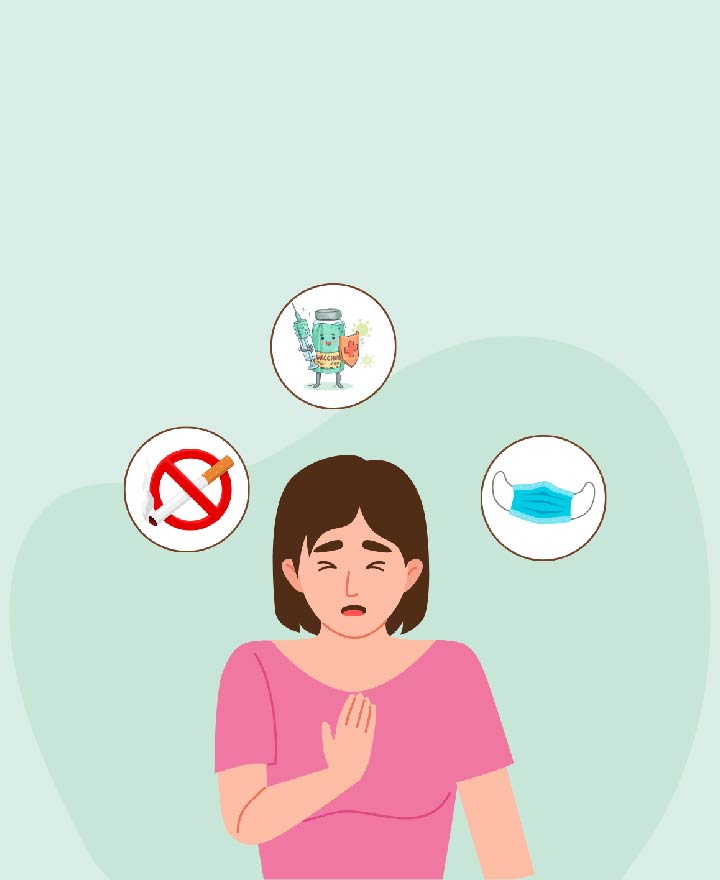

Oral Psoriasis and Its Treatments
Psoriasis, a chronic skin condition, is classified into many types depending on the area it affects. Oral psoriasis is one such type, but it is a very rare condition. This condition affects your mouth and tongue. However, it doesn’t pose any major health risks. Read on to know more the symptoms, triggers and treatment methods of oral psoriasis.
What Is Oral Psoriasis?
Oral psoriasis is a form of psoriasis that causes inflammation within the mouth, most commonly affecting the inner cheeks, tongue, and sometimes the gums and lips. The skin cells in the mouth have a high regenerative capacity and rebuild themselves quickly. Therefore, the symptoms start to fade quickly. This condition, like other types of psoriasis, is not contagious. Though it is not considered a serious health threat, it can significantly affect comfort, oral hygiene and quality of life, especially when eating or speaking.
Symptoms
Some of the common signs to watch out for to identify psoriasis infections in the mouth are:
• Red lesions with yellow or white margins
• Ulcers or sores
• Peeling of the gum tissue
• Pus-filled blisters (known as pustules)
• Sharp pain or burning sensation in the mouth when eating hot or spicy foods
• Tongue fissures
• Periodontitis (decay or inflammation of the tissues around the teeth)
• Geographic tongue (discoloured patches on the tongue’s surface)
• Dry, cracked lips
• Partial or complete loss of taste
• Difficulty with everyday activities like swallowing, drinking, or eating
• Thick, white coating on the tongue
• Linea alba (raised white lines or patches on the inner cheeks)
If you see any of these symptoms, promptly get the medical attention required. In case of major issues, you can rely on health insurance to save you from the hassle of high medical expenses.
Causes
Though the exact triggers of oral psoriasis are not known, doctors do believe that some of the following reasons can increase your risk of developing or worsening the condition.
• Autoimmune disorders
• Genetic predisposition
• Excessive alcohol consumption
• Living in a pollution-prone area
• Some medications
• Chronic infections
• Poor oral health or untreated tooth decay
• Excessive smoking
• Prolonged physical or mental stress
Treatment
In many cases, the symptoms resolve on their own within a month, thanks to the natural regeneration of the skin cells in the mouth. In most cases, topical treatments (use of antiseptic gels, ointments and creams) can provide quick relief from the symptoms.
• Topical treatments: These usually consist of mild, antiseptic ointments or gels. You can apply these directly on the affected spots in your mouth according to your doctor’s instructions for quick relief.
• Phototherapy: The pain and irritation caused by this condition can be reduced significantly when the affected areas are exposed to a certain amount of light for a specified time.
• Systemic medications: These include oral or injectable medications that modulate immune activity and reduce inflammation.
• Corticosteroids: When the pain and irritation are quite high, doctors may recommend corticosteroids to control the inflammation in the affected areas.
• Biologic therapies: These target specific parts of the immune system to manage symptoms and reduce localised inflammation.
Home Remedies
Since oral psoriasis is usually mild, the following home remedies may help manage your symptoms and support oral hygiene:
• Rinse your mouth with a warm saltwater solution to soothe irritation and maintain oral hygiene.
• Avoid spicy foods to prevent irritation and support healing.
• Try OTC antiseptic creams to relieve discomfort.
• Avoid smoking, as it can worsen irritation and delay healing.
• Maintain good oral hygiene by brushing your teeth twice a day and flossing regularly to avoid plaque build-up.
Conclusion
While oral psoriasis is not usually a serious condition, it may require ongoing management through medications or therapies, particularly in severe cases. Treatments such as phototherapy can sometimes be expensive. Having a comprehensive health insurance plan can help ease the financial burden by covering these medical expenses. This ensures you can access the appropriate care without worrying about out-of-pocket costs, especially if long-term treatment is needed.
One of the important components of our overall wellness is also being financially secured. Healthcare emergencies can happen any time, but a good health insurance policy can protect you from such uncertain situations. To know more about Wellness and other health related tips, visit the wellness corner.
Source: Healthline, WebMD, sakraworldhospital
Disclaimer: This blog provides general information and discussions about health and related subjects. The information and other content provided in this blog, website or any linked materials are not intended and should not be considered or used as a substitute for medical advice, diagnosis, or treatment. Kindly contact your doctor before starting a new medicine or health regime.
Related Articles
Skin Problems During The Monsoon
What is Skin Typhoid: Signs, Symptoms & Treatment
Types of Dandruff: Causes, Treatment, Prevention
Scalp Psoriasis vs. Dandruff: How to Tell the Difference
Published on July 22, 2025














 Health Insurance
Health Insurance  Travel Insurance
Travel Insurance  Car Insurance
Car Insurance  Cyber Insurance
Cyber Insurance  Critical Illness Insurance
Critical Illness Insurance
 Pet Insurance
Pet Insurance
 Bike/Two Wheeler Insurance
Bike/Two Wheeler Insurance  Home Insurance
Home Insurance  Third Party Vehicle Ins.
Third Party Vehicle Ins.  Tractor Insurance
Tractor Insurance  Goods Carrying Vehicle Ins.
Goods Carrying Vehicle Ins.  Passenger Carrying Vehicle Ins.
Passenger Carrying Vehicle Ins.  Compulsory Personal Accident Insurance
Compulsory Personal Accident Insurance  Travel Insurance
Travel Insurance  Rural
Rural